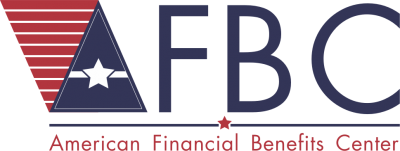American Financial Benefits Center Warns of Consequences of Defaulting on Federal Student Loans

EMERYVILLE, Calif., March 29, 2018 (Newswire.com) - Default rates for student loans are on the rise and projected to get worse as borrowers progress through repayment. Defaulting on federal student loans requires missing payments for 270 days, or about 9 months, straight. While delinquency — or being late on payments for any amount of time — can have negative impacts on one's credit score, default can have much more serious consequences. American Financial Benefits Center (AFBC), a document preparation company that helps its clients apply for and remain enrolled in federal income-driven repayment plans, reminds those who are at risk of defaulting to take action as soon as possible to prevent it.
"Defaulting is a big deal and can severely impact borrowers' financial futures," said Sara Molina, Manager at AFBC. "Thankfully, federal loan borrowers have access to borrower protections that may help them stave off default."
Defaulting is a big deal and can severely impact borrowers' financial futures.
Sara Molina, Manager at AFBC
Defaulting on federal student loans can result in the federal government taking action to collect that debt — the full balance of the loans becomes due, as well as any fees. Borrowers will lose access to forbearance, deferment, and the various repayment plans. If attempts to collect the debt — even through a repayment agreement with the collection agency — fail, they can start garnishing wages and offsetting tax refunds, and they don't need a court order to allow them to do so. However, they are required to send notice of impending garnishment ahead of time.
Delinquency and default can result in a hit to borrowers' respective credit scores, which can affect future attempts to take out new lines of credit, including auto loans, credit cards, or a mortgage. Poor credit may even affect one's ability to get an apartment, utilities, or a job. Therefore, student loan borrowers should try to avoid falling behind on their student loans.
Federal student loan borrowers who are in default have two options for getting out of default, besides full repayment: rehabilitation or consolidation. Each option has its own pros and cons, so borrowers should do their research and consider talking to a professional before deciding which to pursue.
Borrowers who have not defaulted yet, but who may be on track to do so, may be able to turn to federal repayment plans for long-term support. Countless borrowers have found value in income-driven repayment plans (IDRs), which base payments on income and family size and can result in a payment as low as zero dollars in certain situations.
"It's important that borrowers stay on top of their loans, and IDRs may help them in that goal," said Molina. "At AFBC, our members who are in IDRs are in a position to be able to afford their loans, which may better equip them to prevent default. If they ever feel they may need some additional support, we encourage them to be proactive and give us a call so we can discuss potential options."
About American Financial Benefits Center
American Financial Benefits Center is a document preparation company that helps clients apply for federal student loan repayment plans that fit their personal financial and student loan situation. Through its strict customer service guidelines, the company strives for the highest levels of honesty and integrity.
AFBC is a member of the Association for Student Loan Relief (AFSLR), and each representative on the phone has received the Certified Student Loan Professional certification through the International Association of Professional Debt Arbitrators (IAPDA).
Contact
To learn more about American Financial Benefits Center, please contact:
American Financial Benefits Center
1900 Powell Street #600
Emeryville, CA 94608
1-800-488-1490
info@afbcenter.com
Source: American Financial Benefits Center
